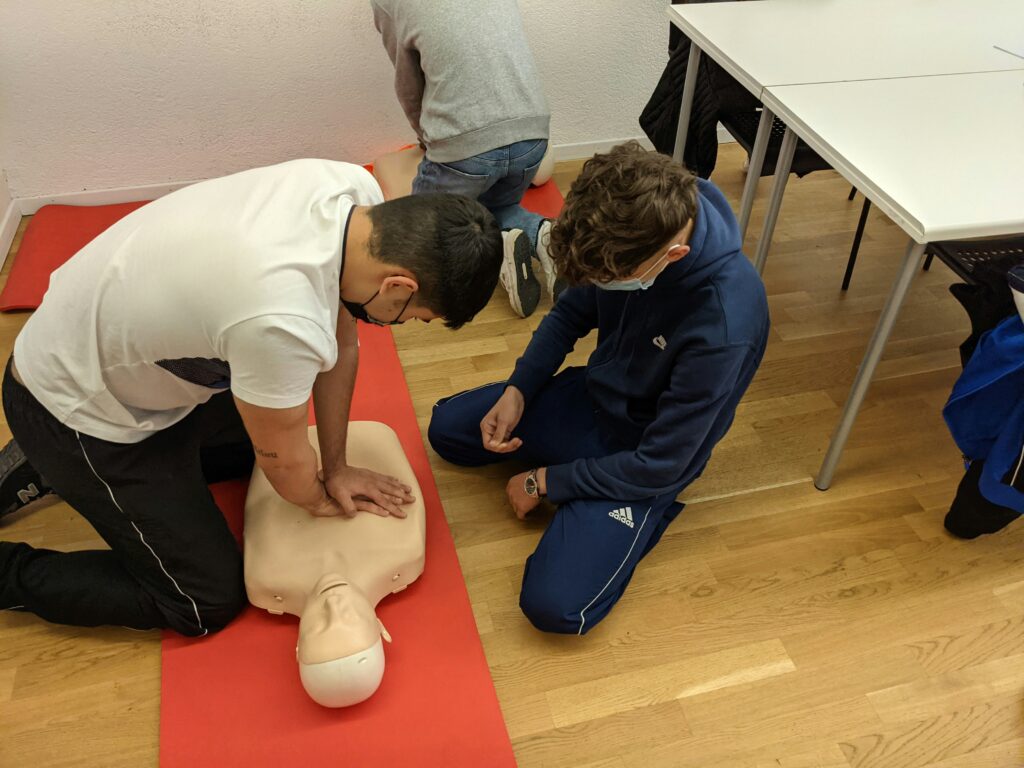Top Benefits of Attending a BLS CPR Certification Class
Cardiopulmonary Resuscitation, commonly known as CPR, is a lifesaving technique that is crucial in emergencies where someone’s breathing or heartbeat has stopped. The knowledge of Basic Life Support (BLS) CPR is essential not just for healthcare professionals, but for anyone who wishes to be prepared for an emergency. Certification in BLS CPR equips individuals with the skills they need to potentially save lives. Obtaining certification could be the difference between life and death in critical moments. Keep reading to discover the numerous advantages of attending a BLS CPR certification class.
Contributing to Community Safety and Well-being Through Preparedness
Training more individuals in BLS CPR significantly improves community safety by increasing the chances of survival during cardiac emergencies. Quick response is crucial, and when more people are prepared, it creates a stronger, more responsive community. Earning certification also encourages a culture of readiness and inspires others to take part in emergency preparedness.
BLS CPR Certification Classes in San Diego, CA, offer residents an opportunity to gain these essential skills. Especially in areas with limited access to immediate medical care, having certified bystanders nearby can make a life-saving difference. This shared commitment fosters a safer, more caring environment for everyone.
Understanding the Importance of BLS CPR in Emergency Situations
Basic Life Support (BLS) involves essential medical procedures for emergencies like cardiac arrest, focusing on airway, breathing, and circulation. BLS CPR training equips individuals to recognize life-threatening situations, perform chest compressions, provide ventilations, and use an automated external defibrillator (AED). The training highlights the urgency of quick, effective responses to improve survival chances before advanced care arrives.
Classes emphasize teamwork, showing how coordinated efforts among multiple rescuers enhance outcomes. BLS CPR also plays a vital role in the chain of survival, which includes early recognition, immediate CPR, rapid defibrillation, advanced life support, and post-cardiac arrest care. Each step in this sequence increases a patient’s chance of survival.
Gaining Confidence to Act in Life-Threatening Scenarios
BLS CPR certification equips individuals with more than just lifesaving skills; it builds the confidence needed to apply them during real emergencies. Without confidence, even well-trained individuals may hesitate when action is critical. Hands-on practice in controlled settings allows participants to become familiar with CPR steps and techniques.
Repeated drills and realistic scenarios help them stay calm and act quickly under pressure. Instructors play a key role by offering feedback and personalized correction, which reinforces proper techniques and boosts self-assurance. Certified individuals often develop a strong sense of responsibility, feeling prepared to respond effectively in homes, workplaces, or public spaces when every second matters.
Enhancing Employment Opportunities with BLS CPR Certification
BLS CPR certification is essential in many professions, especially in healthcare, where it is often mandatory for nurses, EMTs, and paramedics. Its value reaches beyond the medical field. Employers in various industries appreciate staff trained to respond to emergencies, viewing it as a sign of preparedness and responsibility.
This certification can enhance a candidate’s appeal in the job market and may lead to career growth, such as roles in safety or emergency response. Some companies even provide salary incentives for certified employees. Outside of paid work, BLS CPR training strengthens an individual’s ability to contribute as a volunteer in schools, sports teams, and community groups.
Staying Updated with the Latest CPR Techniques and Guidelines
BLS CPR guidelines evolve with ongoing scientific research, making it essential for individuals to attend certification classes that teach the latest techniques. These methods can differ significantly from those taught in the past, emphasizing the importance of staying current.
Regular refresher courses help certified individuals maintain up-to-date knowledge and often include advancements in medical technology, such as AED improvements. These sessions not only introduce new practices but also reinforce core CPR skills through repetition. Staying informed ensures that critical skills remain second nature and positions certified individuals as reliable sources of information in their communities, capable of sharing accurate guidance and contributing to emergency preparedness efforts.
Overall, the benefits of attending a BLS CPR certification class are far-reaching. They not only empower individuals with the knowledge to save lives but also build confidence, enhance career prospects, keep skills updated, and contribute to the safety and well-being of communities. These advantages underscore the significant role that proper training and certification play in fostering preparedness across various aspects of society.

